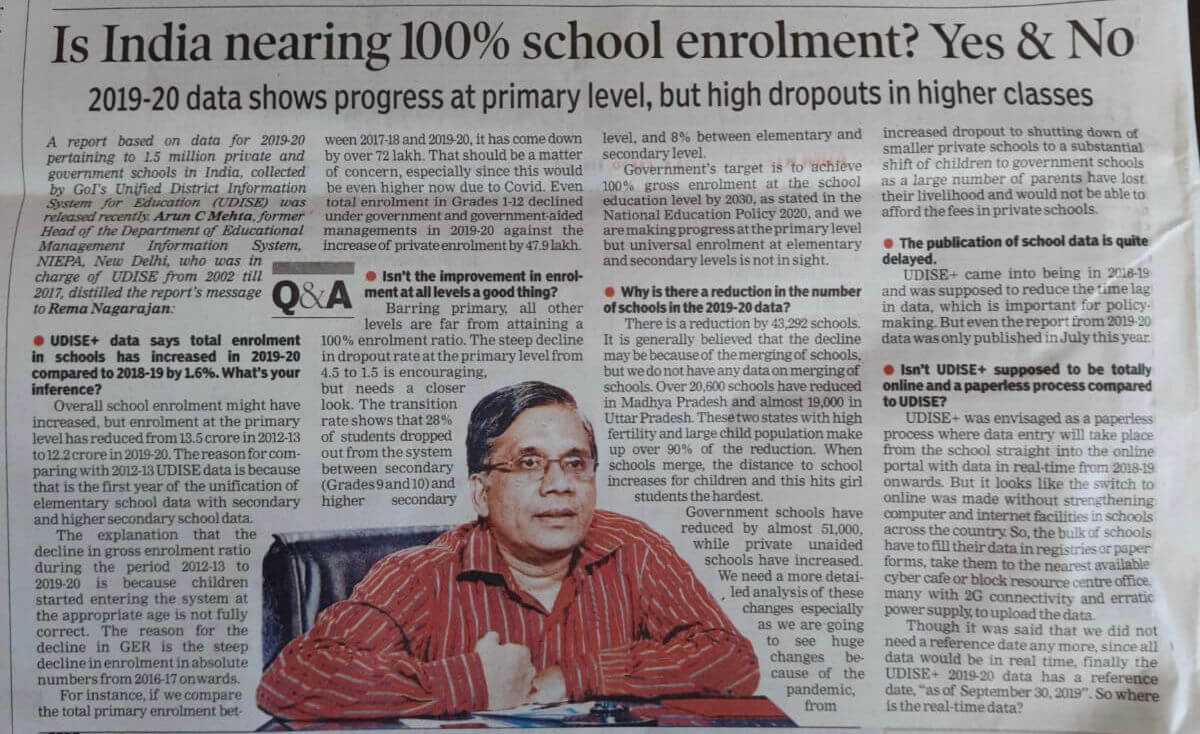NPE 1986 and its POA
7.2.1 The NPE, 1986, and its POA gave unqualified priority to UEE and introduced many innovations. First, the emphasis was shifted from enrolment perse to enrolment as well as retention. As the POA, 1986 put it crisply “enrolment by itself is of little importance if children do not continue beyond one year, many of them not seeing the school for more than a few days.” Secondly, the NPE, 1986 sought to adopt an array of meticulously formulated strategies based on micro-planning, and applied at the grass roots level all over the country, to ensure children’s retention at school.
POA, 1986 sought to replace enrolment drives by participative planning in which the teachers and the villagers would formulate family-wise and child-wise and design of action to ensure that every child regularly attended school or non-formal education center and completed at least five years of schooling or its non-formal equivalent.
Thirdly, the NPE, 1986 recognized that unattractive school environment, unsatisfactory condition of buildings and insufficiency of instructional material function as demotivating factors for children and their parents. The Policy, therefore, called for a drive for a substantial improvement of primary schools and provision of support services.
To this end, the scheme of Operation Blackboard was conceived. The launching of this scheme has greater significance in that it was a manifestation of the Union’s intent to shoulder its share of responsibilities in this vital area of national life, a responsibilities arising from Education being in the Concurrent List.
Fourthly, the NPE, 1986 commended the adoption at the primary stage of a child-centered and activity-based process of learning.
Fifthly, the NPE, 1986 and its POA postulated a large programme of restructuring of teacher education, pre-service as well as in-service, the details of which are spelt out in Chapter 22 of this document. Last but the most important, the NPE, 1986 sought to address the most difficult aspect of access, viz., access to education of millions of girls and working children who, because of socio-economic compulsions, cannot participate in school system.
As rightly pointed out by the NPERC, it was for the first time, in 1986, that an educational policy had admitted that the school would not reach all children and that a large and systematic programme of Non-Formal Education (NFE) has to be an integral component of the strategy to achieve UEE. NFE, as envisaged by the NPE, 1986 and its POA, would have enough flexibility to enable the learners to learn at their own pace and at the same time would have quality comparable with formal education.





